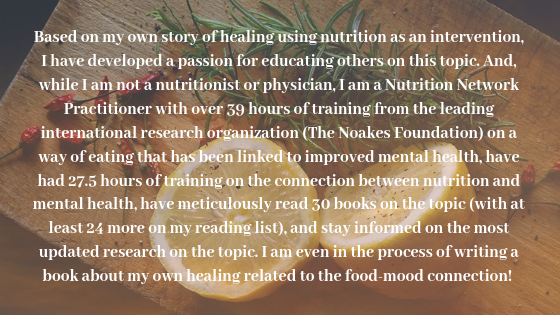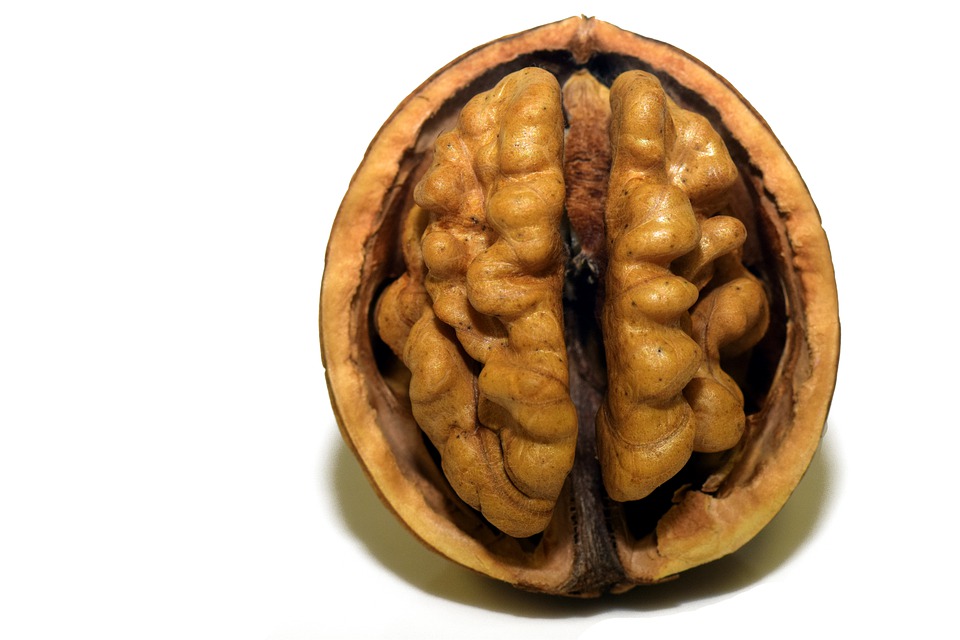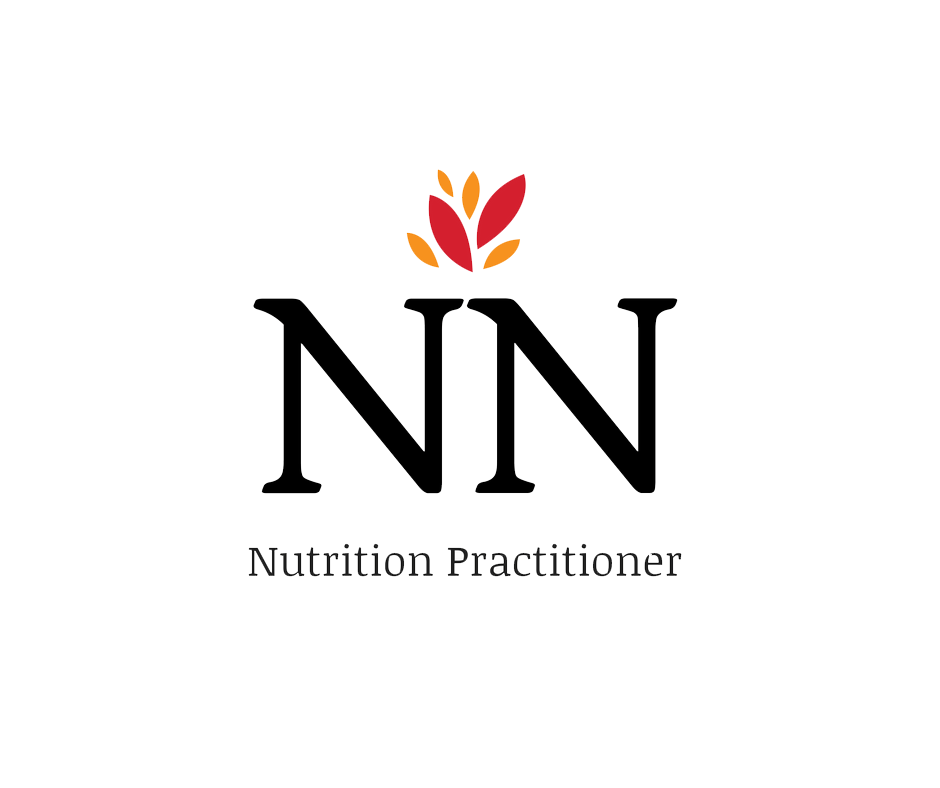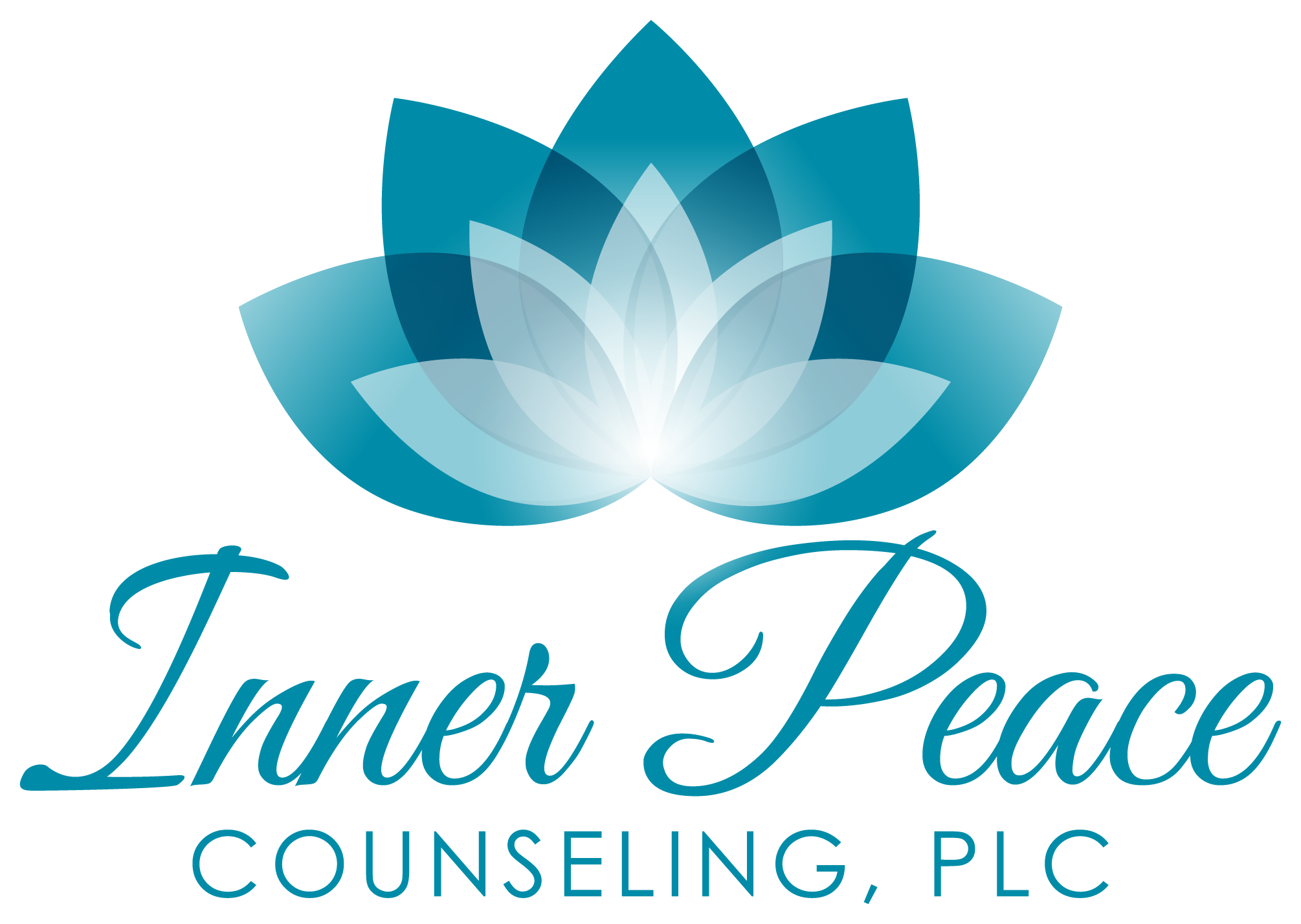Nutrition & Mental Health
Nutrition and Mental Health: A Holistic Approach to Counseling in Kalamazoo
Being a holistic psychotherapist, Certified Mental Health Integrative Medicine Provider, Certified Nutrition Recovery Coach, and a Nutrition Network Practitioner in Kalamazoo means that I talk a lot about the mind-body connection. It is rare that someone I work with denies that it is essential to “eat healthy”. But, it’s hard to know what that means given disagreements about what is the “best” way to eat (e.g. vegan, Paleo, Keto, gluten-free). And, that’s not to mention the high rates of obesity and the frequency of food and sugar addictions attributed to patterns of disordered eating that have become common in our society. Due to this, many are unclear about what “eating healthy” actually looks like. And, some question how exactly nutrition and mental health could even be related.

The connection between nutrition and mental health can be understood in multiple ways. First, our gut is now being understood in science as the “Second Brain”. This is the case because up to 90% of the serotonin (a feel-good chemical of the brain that helps stabilize mood and ward off symptoms like depression and anxiety) is actually is processed in the gut! In fact, researchers like Dr. David Perlmutter or Ansel Keys have demonstrated that symptoms of depression immediate present when a healthy gut biochemistry is compromised and participants are deprived of nutrients.
The second area that most relates to nutrition and mental health is the impact of blood sugar on our mood. The frequency of consumption of sugar and processed carbohydrates in our Western Diet (appropriately called the S.A.D. – Standard American Diet) is showing to be a problem? Here’s why:
- Sugar is now understood to be more addictive than cocaine. Some even argue it’s toxic to the body.
- Dairy and highly-processed carbohydrate products function like opioids (e.g. Oxycontin, heroin) in the brain, which triggers further addiction to such ingredients, which is great for the food companies but not so great for our mental health.
- When we consume carbohydrates (both “natural ones” like potatoes and refined ones like bread) sugars (and, yes, even your fancy and expensive Agave Nectar sweetener is sugar! Repeat after me: “sugar is sugar is sugar.”), our glucose (“blood sugar”) increases. Unfortunately, after the rise comes a crash. This is when we feel “hangry.” I frequently see anxiety and panic attacks being triggered at this time as your body experiences the same stress response from your blood sugar crashing as it does when you are having a panic attack. Your body literally thinks it is dying! (And, if you have ever experienced this crash, something called reactive hypoglycemia, I had struggled with my whole life until recently, you feel like you’re dying, too.)

It is because of this intimate relationship between the gut, brain, and mind that we know that nutrition and mental health are not two separate things. This doesn’t mean that mental health can be “cured” with nutrition (although the frozen pizzas you are eating probably don’t help). And, because every body is different, I also cannot tell you what you need to eat. However, here is what we do know:
- A recent study found that only 12% of Americans are metabolically healthy.
- Binge-eating is the most prevalent eating disorder and is common among those who are obese, which is nearly half of American adults.
- A well-fed brain and body is better at managing stress.
- People are reporting “sugar addiction,” “food addiction,” a lack of control over what they eat, and shame about not only their bodies but their food intake in ever-growing numbers. (I also see this trend in my own practice!)
Food does not play the same cultural role that it did for our ancestors. It only has a tiny portion of the nutrients it once did (yes, even those organic veggies you buy!), and there are a whole host of additives in our food that we don’t even know about.
As with anything, the first step is awareness. I work with clients to use a mindfulness approach to helping to address the underlying emotions that cause an unhealthy relationship with food. I coach others to check in with what they are feeling and saying about food and their bodies.
After awareness, education can be helpful. Given that knowledge is power, research how your food is processed and how what we are consuming affects our bodies and brains and, therefore, our mental health. Lastly, I apply the concept of practicing intuitive eating and radical self-love in order to not perpetuate shame around food, but to help transition people to have a healing relationship with their bodies, minds, and food.

***AN IMPORTANT NOTE: Given that I am a Nutrition Network Practitioner with the leading international research organization on a way of eating that has been well-documented to improve mental health, I realize that some people may be interested in exploring the relationship between nutrition and mental health without psychotherapy specifically. For those who desire to address this connection outside of the therapy room with more intimate support (e.g. via text or informal coaching meetings), I also have a lifestyle coaching business where I can provide individualized coaching for such topics. The only difference is that insurance will not cover such services. Please contact me directly with any questions to see which form of services would be right for you.

